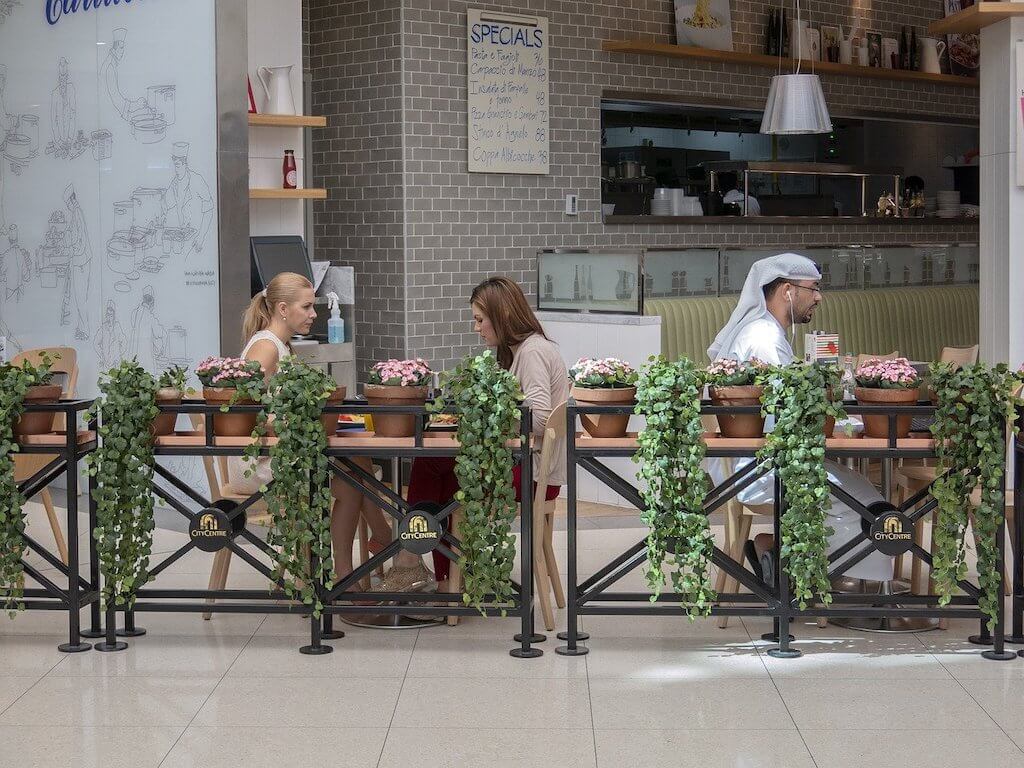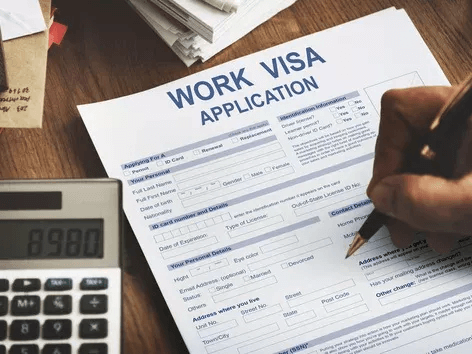There are undoubtedly going to be many aspects of life in Dubai that expats considering a move there may wonder about, from culture shock to lifestyle.
Here are responses to some of the most typical queries related to moving to Dubai.

What are the different types of visas and entry permits?
The government of the United Arab Emirates issues various visas and entry permits, which you can read about in more detail here.
In brief, listed below are some of them:
- Employment Visa: Those who have signed an employment contract with a company registered in Dubai are eligible to apply for an employment visa.
- Business Visa: Foreign businesspeople can apply for the UAE Business Golden Visa, which grants residency for up to five to ten years, if they want to obtain a long-term visa for themselves and/or their dependents.
- Investor Visa: Holders of this visa must have a capital investment in an existing company of at least AED 72,000 or be establishing a new company in Dubai with a capital investment of at least AED 72,000. The visa, which is also known as the Dubai Partner Visa, has a three-year maximum validity period.
- Student Visa: International students who are at least 18 years old are eligible for a student visa. A 5-year Dubai student visa is available to exceptional students with a GPA of 3.75 or a minimum score of 95%. whereas a student visa typically has a one-year validity. If the student’s course is still in session, it may be renewed. The General Directorate of Residency and Foreigners Affairs (GDRFA) approval, passing a medical fitness test, and submitting a sponsorship from a parent/relative or the university are prerequisites for applying for a student visa.
- Dependent visa: You are qualified for a dependent visa if your spouse, parents, or kids have a current residence permit in Dubai. Men must make a minimum monthly salary of AED 4k or AED 3k with housing if they want to bring their wives to Dubai. According to Dubai government policy, those who wish to sponsor their parents must earn a minimum salary of AED 20,000. Women may sponsor their families as long as they receive a monthly salary of AED 10,000 or AED 8,000 plus housing. Additionally, the Department of Naturalization and Residency Dubai must grant them special permission (DNRD).
- Freelance Visa: Independent contractors are eligible for this category of visa. In Dubai, you can apply for a freelance visa if you want to work independently in the media, tech, or education industries. Different rates are available for freelance visas in well-known free zone areas like Dubai Media City, Dubai Internet City, and Dubai Knowledge Park.
- Green Visa: This new residence visa type is known as a “green visa.” Holders of green visas are permitted to work in the UAE for five years without an employer’s sponsorship. This visa is available to independent contractors, skilled workers, and investors and partners. Here is all the information you require regarding the UAE Green visa.
What are the most crucial details you need to be aware of before moving to Dubai?
If you’re moving to Dubai:
- Familiarise yourself with some common Arabic phrases. While English is commonly spoken across the UAE, it’s a good idea to learn a few Arabic words and commonly used terms. Our guide to Arabic words and phrases used in Dubai might come in handy.
- Dubai’s climate is hot so you have to prepare accordingly. That said, all indoor entertainment venues, shopping malls and homes are centrally air-conditioned in Dubai. Furthermore, there are several ways to beat the heat in your home in Dubai.
- You must be familiar with the dress code in Dubai.
- Dubai is a diverse city with people from all over the world living here.
- Understand that Dubai has a zero-tolerance policy for drug and substance abuse.
If you want to know more, check our guide on things to consider before moving to Dubai.
What are the steps to find a job in Dubai?
There are many top job sites in the UAE such as LinkedIn, Bayt, Laimoon and NaukriGulf that can help you find a job in Dubai. You can also reach out to the different recruitment agencies in Dubai that can help you find employment opportunities according to your interests and career goals.
What kind of documents should you bring to move to Dubai?
Ensure that you bring crucial documents, such as:
- attestation of academic
- credentials certified marriage license (if applicable)
- birth certificate with legalization
- a current driver’s license (you can convert it to a UAE driving license)
Prior to departure, be sure to attest/certify your documents in your home country.
How do I find accommodation in Dubai?
In Dubai, there are many housing options, from luxurious developments to more reasonably priced ones. While rents in places like Dubai Marina and Arabian Ranches are significantly higher, Mirdif, Deira, International City, and Al Nahda typically have lower rents. On Bayut, one of the top property portals in Dubai, you can look for your new apartment, townhouse, or villa.
What is the cost of living in Dubai?
Dubai’s cost of living is influenced by a number of variables. You’ll spend a significant portion of your budget on things like housing, food, utilities, transportation, medical care, and education.
As was already mentioned, Deira, Dubai Silicon Oasis, and Al Nahda offer more affordable housing than Downtown Dubai and Arabian Ranches.
- For a better idea of what would be more appropriate for you, look at the apartments for rent in Dubai as well as the more family-friendly villas for rent in Dubai.
- Your consumption will have a significant impact on how much your utilities (electricity/water, TV, internet, and mobile phone bills) will cost.
- Your car’s type and how often you travel will affect your transportation costs. An NOL card from Dubai Metro costs (on average) AED 350 per month.
- Compared to IB, British, or American schools, Indian schools are more reasonably priced.
What types of restaurants are available in Dubai?
A variety of cultures coexist in Dubai. As such, there is an impressive diversity of cuisines in the city because there are people who live and work there from over 200 different nationalities. In Dubai, you can eat almost any cuisine, from American to Indian. While some restaurants are pricey, there are also many affordable and mid-range options.
How to move around in Dubai?
In Dubai, there are numerous ways to get around, including the Dubai Metro, buses, Dubai Tram, taxis, and marine taxis. Residents also use ride-hailing apps like Uber and Careem.
Furthermore, you have the choice to apply for a driving license in Dubai or convert your existing license. Here’s how to apply to have your US driver’s license converted to a UAE license if you’re moving to Dubai from the US.
How much does it cost to move within Dubai?
The distance, size, urgency, and additional services requested all affect how much it will cost to move within Dubai. A two-bedroom apartment typically costs between AED 1,500 and 3,000 to move into.
East West Movers and Packers, Trukkers, EasyTruck, and The Box are just a few of the many moving businesses in Dubai. You can look through our directory of movers and packers in Dubai and select the business that best meets your needs.
Is moving to Dubai worth it?
Dubai is one of the best places to start one’s future because salaries here are tax-free. The tax-free income eventually means more opportunity to increase your savings and a compelling reason to move to Dubai for the majority of expats who come there in search of better opportunities.
What is the healthcare system in Dubai like?
In Dubai, there are numerous public and private hospitals, clinics, and pharmacies. Some of the best government hospitals in Dubai include Dubai Hospital, Rashid Hospital, and Al Maktoum Hospital. Aster, Medcare, and NMC Healthcare have a large network of clinics in Dubai.
The government hospitals in Dubai provide free emergency care to all patients, but other hospitals in Dubai have higher fees that are primarily covered by the sponsor’s health insurance. You might, however, be required to pay for the dependents’ health insurance. To purchase a family insurance policy, look into these health insurance providers in Dubai.
Can I drive on my license from home in Dubai or must I take another test?
Depending on the nation of origin. Europeans, Australians, Americans, and citizens of a few other nations are exempt from taking the exam. These recent immigrants must instead present their current driver’s license, passport, and resident permit to the Roads and Transport Authority.
Before receiving a UAE license, they will be required to take an eye test there. Expats may operate a rental car while still holding a valid driver’s license from their home country. The Dubai Roads and Transport Authority has a detailed list of the nationalities that are exempt from having to retake the test.
What is the average expat lifestyle in Dubai like?
Really, it depends. In the past, Dubai allowed Western expats to live affluent lifestyles thanks to generous employment benefits.
The majority of expats had large villas, domestic help, expensive cars, and still had money to spare. Nowadays, packages aren’t as generous, and a lot of expats are drastically downsizing.
Despite this, expats will still be able to live comfortably, even though they cannot afford the extravagant lifestyle that Dubai was once known for. There are plenty of activities available, including golf, water sports, scuba diving, and even skiing, and eating out is reasonably priced. Almost anything and everything can also be delivered to one’s home.
Exactly how hot does it get in Dubai?
Anyone who has lived in Dubai during the summer will attest to how uncomfortable the climate can be. With stifling heat and temperatures rising to 98°F (50°C), air conditioning is a necessity.
Restaurants close their outdoor seating areas during the summer, many expat families return to their native countries during this time, and the remainder simply eat inside. While the weather might be a treat for tourists, it can be exhausting for those who must live and work there.


